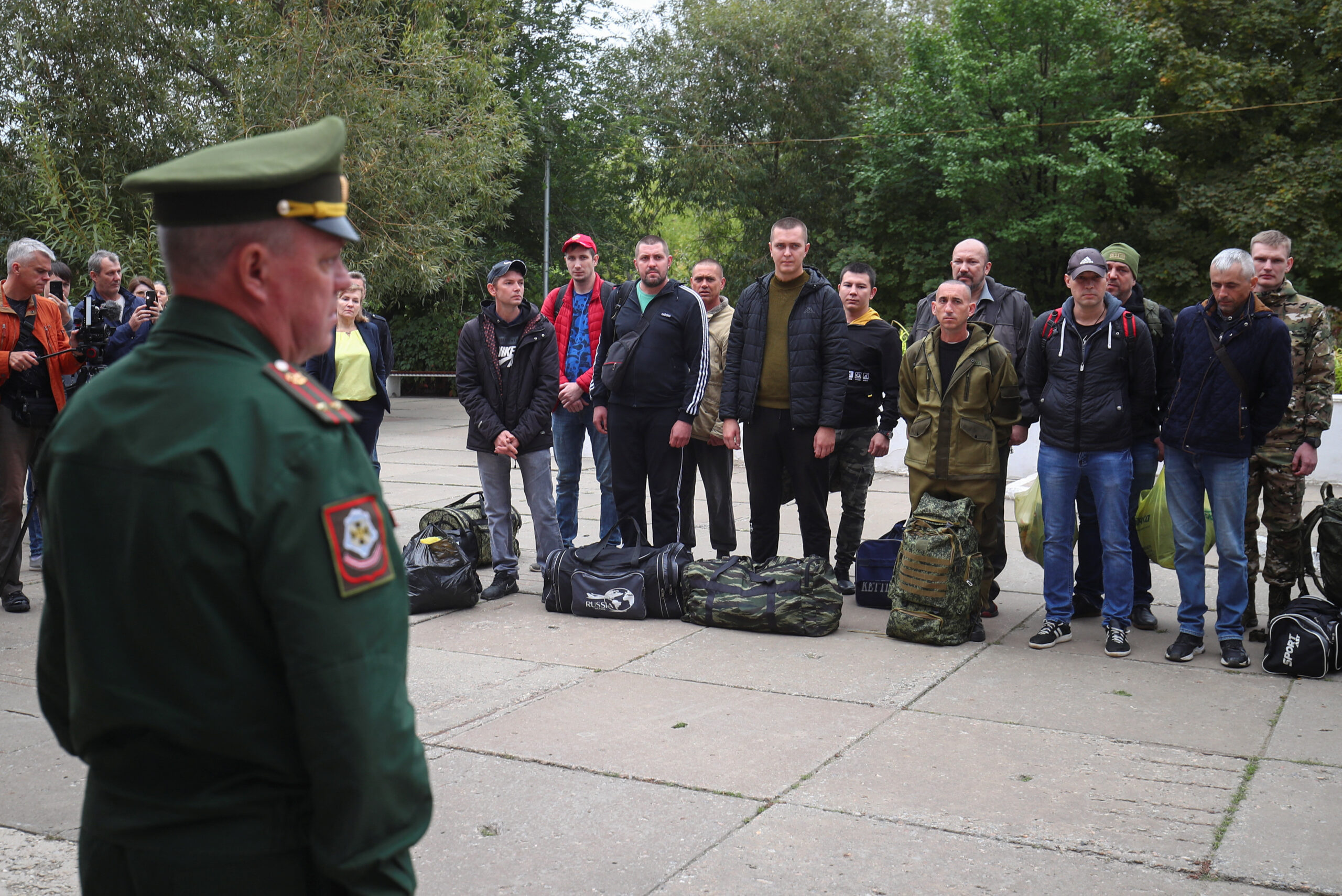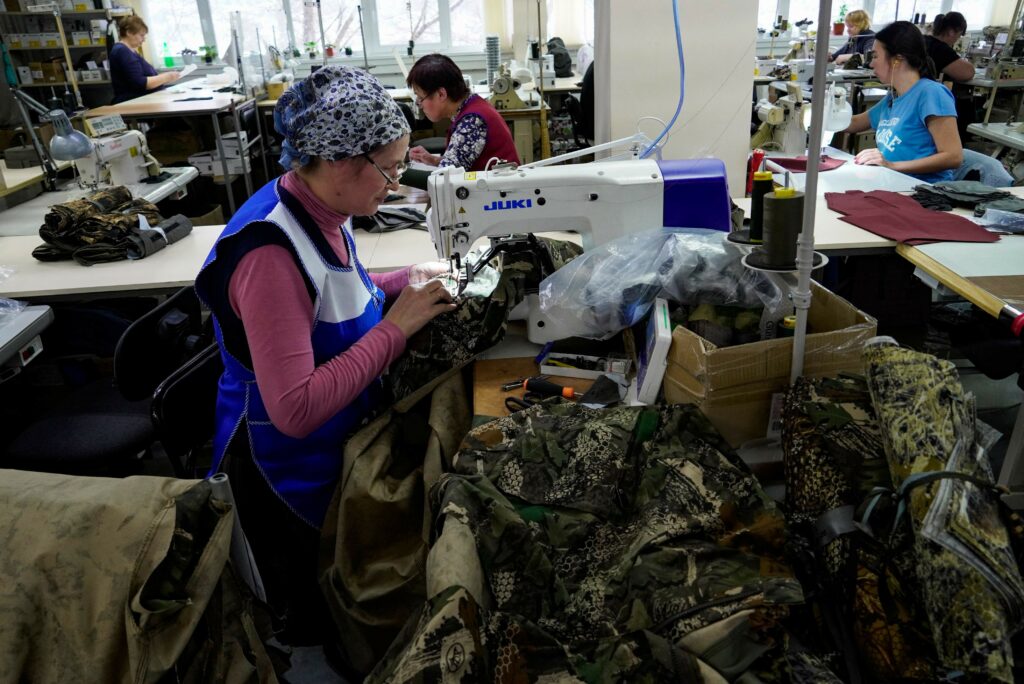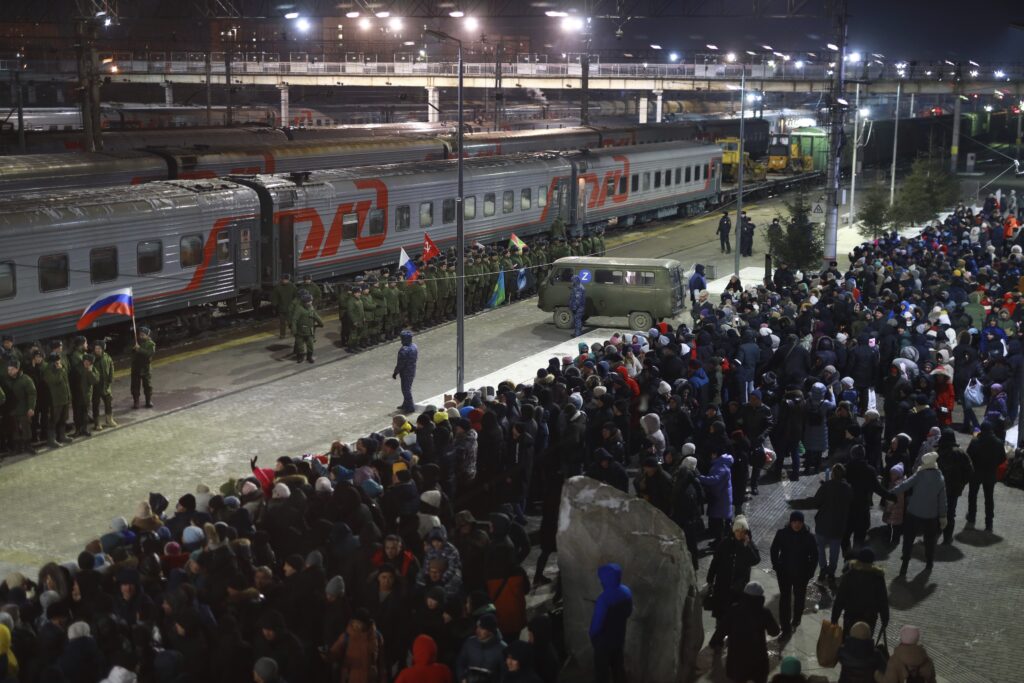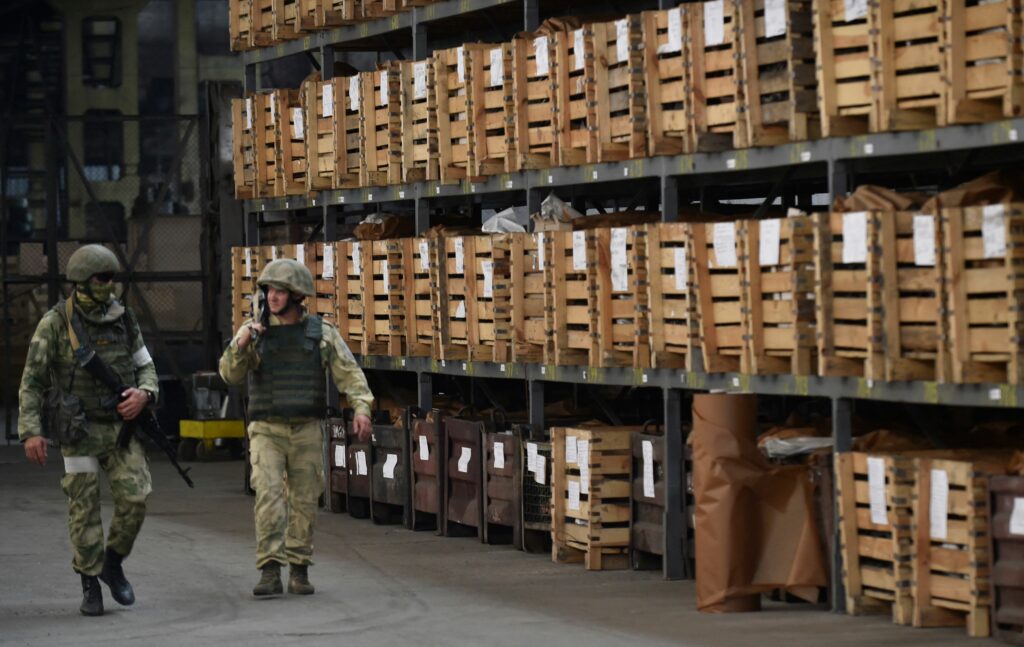Under the current circumstances, many wonder how Russians feel about the president who is now in command of the ‘special military operation’ (SMO) that has been going on for more than six months.
The figure referred to as Putin’s approval rating is still impressive. The well-known fact that an absolute majority of Russians have repeatedly expressed approval of Putin’s performance as president is something we have explained many times. Russian society, dissatisfied with the unusual foreign policy conducted by Gorbachev and Yeltsin who ‘disarmed the superpower’ that was outplayed by the West, entrusted the new head of state with the mission of restoring and maintaining Russia’s greatness. How? By selling oil and gas and, most importantly, by demonstrating military might.
No matter whether the sabre rattling in the war against Georgia was truly impressive or not, the Russians believe the invasion paid off: Russia achieved its goals regarding Georgia (although Georgia was backed by the US, as Russians believe), and faced no serious retaliation, only insignificant sanctions. It went even better with Crimea. ‘We turned out to be so strong that they gave it to us without a shot being fired.’ Again, the response from the West has been nothing but words of condemnation and sanctions. And sanctions, as at least two-thirds of Russians reiterate, ‘are not a reason for us to abandon our policy.’ In both cases the President’s approval rating soared to 88%.
The advance of Russian troops in Ukraine was accompanied by nearly the same level of approval (83%) of the activities of the president/supreme commander-in-chief. Among his explanations as to why we should invade Ukraine, Russians found the following justification the most convincing: it’s not about Ukraine, it’s about the US and NATO again. This is a fight with them. And it is our destiny to stand up to them. Among those who approved of Putin’s deeds, almost everyone (90%) supported the advance of Russian troops in March.
The explanations that we are at war with the West have been backed up with tangible proof: their cannons and their missiles are used against us. We are not talking about the impressions of those on the battlefield, we are discussing the opinions of those sitting in the kitchen and keeping half an eye on TV. In May, the gender distribution and level of approval of the president’s policy didn’t change; 80% of men and 75% of women still supported the advance of the Armed Forces of the Russian Federation. Moreover, the level of support reached almost 90% among those who believe that TV is the most reliable source of information. Two months later, in August, the approval rating did not decline, and 83% supported Putin’s decisions (rising to 88% among pensioners). And readiness to support the actions of Russian troops in Ukraine remained largely unchanged (78% among men and 74% among women).
The spring and summer military campaign left Russians feeling optimistic, as reported by 68%. The percentage of those who stated that ‘the country was on track’ was also 68%, and the situation did not change for months. The path seemed ‘wrong’ only to one-third as many while ‘stress’ and ‘fear’ were experienced less and less frequently: less than a third of respondents in total experienced negative emotions in March, and less than a quarter in August. In May, 35% of men and 43% of women were ‘seriously concerned’ about recent developments in Ukraine, as compared to 33% and 41% respectively in August. The war was going on ‘somewhere out there’ – on TV, to be more precise. Everything was peaceful in Russia.
But then September came around. It was full of unprecedented events at the frontline and at home, and some of the indicators changed. Thus, 77% of those polled heard something about the retreat of Russian troops from the Kharkiv region. According to respondents, this was ‘shocking’ news. They expressed ‘shame’ and ‘anger’, but mostly ‘fear’. As commentators later explained, the image of ‘the strongest army in Europe’ was seriously undermined. And since people were under the impression that NATO was about to attack us, the issue of our army’s ability to defend us was no longer an abstract one. Hence ‘fear’, rather than ‘shame’, became the dominant response to this news.
Still, the Kharkiv region is far away. And here, back home in Russia, something everyone feared but hoped to avoid — namely mobilisation — was announced. Those who rushed to flee immediately after February 24 explained their hurry by the fact that mass conscription would be introduced, and their sons would be sent to places where people kill each other. Some fled, others could not leave, but the panic slowly subsided. No mobilisation was announced in March, or even on May 9. Top officials insisted that it would not take place, that there was no need for mass conscription. The army as it was could cope with all the tasks. And anyway, this is not a real war, it is still just some kind of ‘special operation’.
Despite these comforting declarations, the fear that mobilisation would nevertheless be announced persisted among 50% of men and almost 80% of women. And then it was decided at the top. The reaction: ‘shock’ was reported by a third of those under 35, and ‘anxiety, fear’ was experienced by 50% of them.
Young men (56%) are afraid, while the women (64%) fear for their men’s lives. It is important for us to understand: what is said by top officials and broadcast on TV is one register, whereas the feeling of calm or anxiety is a different register. That was the case for six months, when many were surprised that people were having fun in Russia and celebrating the opening of a new Ferris wheel while people were dying over there. But the news of the mobilisation has, for many (not yet for all), poked through the membrane between these registers. Public and personal matters began to intermingle. Consequently, approval of the actions of the Armed Forces of the Russian Federation on the territory of Ukraine decreased by 4 percentage points (and by up to 10 percentage points among 18−24 year olds). The percentage of those who believed that ‘the country was on track’ fell by 8 percentage points as soon as the mobilisation was announced. This is a noticeable drop, although 60% of respondents remain optimistic.
Putin’s approval rating — the symbolic pillar of the regime — has dropped by 6 percentage points. Still, 77% is an impressive result. We have written many times that this figure signifies the symbolic solidarity of the people of the country with what they consider to be the most important thing in Russia — the supreme authority. Let us now take a look at the distribution of this solidarity.
The above-mentioned 77% of respondents who approved of Putin’s performance as president included 41% of those who chose the answer ‘I definitely (approve)’ and 36% of respondents who preferred the wording ‘I rather approve’. It is noteworthy that in September, among citizens under 40 years of age, that is, the group comprising the largest number of reservists and potential conscripts, the latter, more hesitant wording was used more frequently.
Moreover, it turned out that of those who approved of Putin’s decisions, almost half were afraid of the ‘possibility of Russia using nuclear weapons’, and more than 60% ‘feared’ that mobilisation would be declared. Again, their approval of the president’s actions belonged to the abstract realm of the political. But fear of death from nuclear weapons and fear of mobilisation (and reprisals for avoiding military service, or disseminating ‘fake news’ about the SMO) were perceived as threats, interfering in the very fabric of individual life. Therefore, when the mobilisation order which had been ‘feared’ so much was signed, the predominant response in society was not political, but human, and overwhelmingly negative: ‘anxiety’, ‘fear’, ‘shock’, etc. Negative responses exceeded 80%, as compared to less than 40% of the feelings of ‘satisfaction’, ‘joy’, ‘excitement’ and ‘pride in Russia’. One respondent could give several answers, the sum could exceed 100%, so ‘pride’ mixed with ‘anxiety’ in many instances. Men mentioned ‘fear/anxiety’ as often as ‘pride in Russia’, whereas younger male respondents experienced ‘fear/anxiety’ six times more often than ‘pride in Russia’.
In May, among those who approved of Putin’s performance as president, 82% thought that the ‘special operation’ was going well while 10% disagreed with that statement. But in September, when it became clear that for some reason there were not enough soldiers, the ratio became 63% to 21%. Overall, 9% thought the SMO was progressing ‘very successfully’ compared to 44% that believed it was progressing ‘rather successfully’. The SMO was described as ‘extremely unsuccessful’ by 9% of respondents in late September, and ‘rather unsuccessful’ by 22%: 31% in total. In the largest cities, 33% or more claimed the SMO was unsuccessful.
This might be one of the reasons why the belief that the SMO should be phased out became more widespread (44% in August versus 48% in September). The news about the recent Russian defeat near Kharkiv may have had an impact. Respondents also took note of the fact that Putin himself started to propose negotiations. However, supporting military action had become a habit, and 52% of the pro-Putin majority were still in favour of it in August while the minority (39%) were in favour of moving to negotiations. Since Putin’s supporters constituted the majority both numerically and morally, their opinion was more popular. It was therefore not surprising that, in society as a whole, supporters of continuing military action outnumbered supporters of a transition to negotiations. In August the ratio was 48% to 44%, respectively.
In September, as in August, the majority of those approving of Putin’s performance as president were in favour of continuing the SMO instead of moving to negotiations. But now society as a whole was ahead of them in the process of transforming attitudes. Among the general population, those in favour of continuing the SMO were in the minority in September (44%). Respondents in favour of peace talks in society as a whole, as mentioned above, constituted 48%, with more than 55% among those under 40 and 57% among women.
During the second Chechen war we asked the same question, and women were consistently more in favour of moving to negotiations than men. The number of supporters of negotiations increased each month, although the gap between women’s and men’s attitudes persisted. The same tendency might have been expected here as well, but back then the war was more protracted, lasting several years. In September 2022, the situation became dynamic: the Ukrainian counteroffensive, the mobilisation, the threat of nuclear attack and the threat of retaliation.
In addition, there is another very significant circumstance. We can admit that on the whole women tend to be more compassionate and peace-loving than men, and they are generally more afraid to lose their sons, so they are ahead of men in supporting the transition to negotiations. And we tend to expect that there is a ‘party of peace’ or a ‘party of humanists’, and almost half of Russians are already in this group. Yes, among the opponents of hostilities there are those who took to the streets back in March, putting their safety at risk, and who even now believe that the invasion should not have been launched. However, from additional sources we learn that at present the main reason why respondents support the transition to negotiations is to save the lives of ‘our boys’ (they are not concerned about ‘the others’). In addition, some supporters of moving to negotiations believe that a ceasefire is needed to increase the combat readiness of the Russian army, which must then ‘drive the nail home’.
Many supporters of negotiations — both among our respondents and among European politicians — advocate them for a simple reason: the main thing is to stop shooting at each other. But to the best of our knowledge, the Ukrainians can only agree to talks on condition that the situation is restored to the status quo from before 2014, while the Russian side has only agreed to accept the current status quo. It is unlikely that a compromise can be reached any time soon.
When will it all end? Among those we asked, the proportion of respondents who say that the ‘special operation’ will last more than a year and those who do not know the answer to this question has only risen over the last six months.
We will try to continue to monitor how Russian attitudes to these processes and events change, and to report our observations to anyone who cares.










